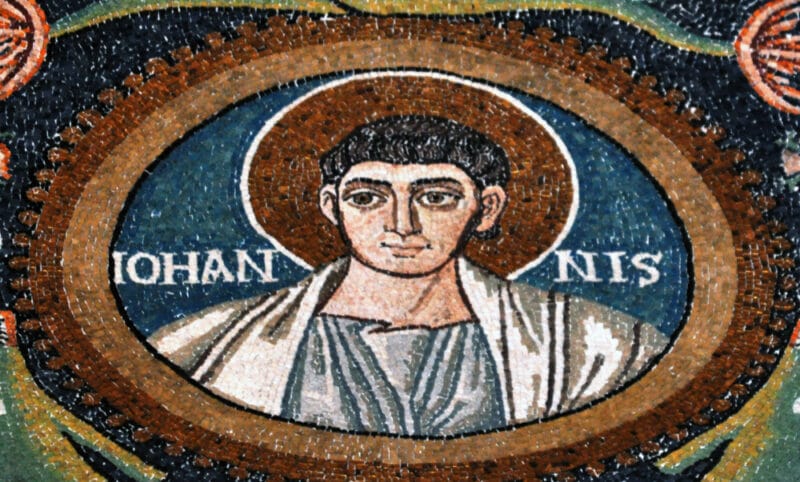Getting To Know God
God consciousness begins by getting to know the divine nature of God. This knowledge, as imperfect as it may be, lays the groundwork for your next step, which is becoming consciously aware of the presence of the Spirit within your mind.
Although the full character of God is far beyond our grasp, and despite the limitations of mind, it behooves us to stretch our imaginations to the uttermost limits of comprehension. By doing so, we not only improve our understanding, acceptance, and love of the divine nature, but we also improve our reception of the spiritual gifts of God.
When it comes to knowing God, we cannot judge the divine nature solely on the basis of humanity’s minimal knowledge, limited awareness, or religious doctrines. No matter how much we think we know God, no matter how much we grasp the true nature of this First Great Source, there will always be so much more to know. Nonetheless, we do not need to know all of God to achieve God consciousness.
Getting to know God begins with the understanding that God is the First Source of all things—the primal source of all reality. Indeed, except for God, there would be no such thing as reality. God is the Supernal Ancestor of all things—the limitless power at the center of all creation—beginningless, endless, timeless, and spaceless.
God is the only stationary, self-contained, and changeless being in the whole universe of universes.
– The Urantia Book
There are many more important concepts of God to contemplate (see below, Essential Concepts of God). Becoming familiar with these concepts helps to raise your mind to superconscious levels of God consciousness.
God Awareness
Consciousness is a state of awareness associated with self-consciousness—it is our experience of self as well as our awareness of something within ourselves. It is this awareness of something within us that is the beginning of true God consciousness—an awareness of the presence of God. It is a consciousness that goes far beyond thoughts or words.
Our growing awareness of the Spirit Within relies on our intellectual capacity to know God—it is a consciousness of divinity that unfolds on increasingly progressive levels of realization. Anyone of average mind has the capacity for God consciousness. It is only our individual depth of understanding or comprehension that varies.
As an illustration, a swaddling infant may be completely unaware she is enclosed in a crib or in a room but, as she grows, she begins to recognize the crib and the room as separate entities and, as she begins to move around, she notices other rooms, each one with a specific purpose, such as one for sleeping, one for eating, and another for entertainment. Later, she realizes that all the rooms form a part of her house and are contained within the house. And later still, as she experiences life outside the house, she sees that her house is only one house on a street with many houses.
But she also becomes aware, perhaps unconsciously, that the house is more than just a house. It is also a home that carries meaning, a place where she learns to appreciate different values, a dwelling where she learns duty and loyalty to family, and a community where she learns about social interactions and greater morality. In other words, the house connotes meaning and value in both the intellectual and spiritual states of her consciousness.
At each stage in this venture of consciousness, the girl experiences a gradual increase in the understanding, meaning, and value of the house and, therefore, a greater consciousness of the house in the context of the whole. Each stage of consciousness is a more comprehensive level of reality perception, but each level of perception is relatively true. This step-by-step process of increasing consciousness is the same process we go through in our attainment of God consciousness.
Just as the young girl became aware of various levels of house reality, so it is that we become aware of various levels of God reality. We first come to understand the idea of God, a purely intellectual pursuit that any child can grasp. Secondly, we begin to realize the ideal of God—a more advanced recognition of the true nature and attributes of God. And last, through personal experience, we come to realize the spirit reality of God, a consciousness of the actual presence of the Spirit Within.
To Love Is to Know
It’s easy to judge others prematurely because of their inconsiderate actions or rash words, but when we understand why they act the way they do—when we consider their circumstances in life and what they may have endured or suffered, we become more compassionate and merciful. And just as we come to love others by getting to know them, the same can be said of God. By understanding the true nature of the Divine Source, we come to admire and adore this nature.
But with some distinction, we can never truly know God until we first learn to love this supernal Being with all our heart, mind, and soul. Our reverent love for this eternal Source of Love opens our minds to knowing even more about the true nature of God and thereby heightens our grasp of God consciousness.
Whoever does not love, does not know God, because God is love.
– John 4

God consciousness, therefore, goes hand-in-hand with your increasing ability to know God through love. You are simply returning the extraordinary love that God lavishes over you, thereby forging a profound love relationship between you and your Creator. This love is not an artificial feeling of euphoria. Neither is the presence of God a figment of your imagination. The truth is, you can be as certain about the reality of God as you can about the reality of any other person in your life. It’s a very real experience.
But for all that, many have difficulty loving a parental God or giving any kind of adoration to a Creator Spirit. The reasons for this vary but in some cases, our aversions can be traced to poor parent-child relationships. Children naturally draw strong correlations between their earthly parents and an ideal heavenly Parent.
The effects of poor parent-child relationships run deep, making it extremely challenging for victims of misguided or abusive parenting to picture a loving, heavenly Guardian. Even much later in life, it’s difficult for such wounded souls to dismiss or even discuss their hurtful, formative memories.
What God is to the world, parents are to their children.
– Philo of Alexandria
But any confounded or misguided thoughts about the true nature of God must be resolved if we wish to progress in the spirit. The truth is that the personalities of our parents have nothing to do with the personality of God. Family metaphors are used to refer to a desired ideal that exemplifies perfect family relationships.
Fortunately, over time, as fathers and mothers become wiser, more caring, and more loving, their children will be better equipped to envision a wise, caring, and loving Divine Parent.
All peoples and nations are of one family, the children of one Father, and should be to one another as brothers and sisters.
– Baha’u’llah
God Is Someone
An important step in God consciousness is the realization that God is someone, not something. One of the most profound realizations we can have is that God, as the First and Universal Personality, is a personal being. God’s personality, along with his precious gift of personality to us, is the very thing that allows us to make an intimate connection with this Spirit Being.
God is not a person as we might commonly conceive, but this infinite Source is a person in the sense that we can get to know him in a meaningful way, just as we can get to know our next-door neighbor. God is personal not just because he or she is intelligent and conscious but also because he can know and be known, love and be loved.
While God must be infinitely more than a personality, he cannot be anything less.
– The Urantia Book
As we discovered in another article, having a personality is what allows us to recognize and interact with other persons—it is the ability to have intellectual contact—to communicate. We are conscious beings who can share individual life experiences, discuss personal problems, love each other with unselfish love, and know each other on a profound level of understanding.
What is meant by a personal God is a God who is conscious of his creation, who has a mind, a will, a purpose.
– Shoghi Effendi
Knowing God as a person is not something we can ever discover through reason or logic alone. An eternal and infinite God who is the source of all reality cannot be limited to the confines of human logic or the fetters of human philosophy. Nor can there be any logical limit to the scope of God’s manifestations. Nevertheless, we can increasingly realize the truth of this Divine Person through our very own religious experiences—through spiritual communion and spiritual insight.
As the creator of all things, God embraces the personal, the nonpersonal, the prepersonal, and the superpersonal, or any other state of personality you can imagine. To communicate, or commune, with personal beings, God must have a personal side that is much more than a spiritual force or a universal intellect.
God is far more than the thing he/she creates. If we envision God as an energy or force, then how does this inanimate energy express love? Love is a personal act, a feeling of devotion between two or more persons. The Divine Spirit is a personality with whom we can converse, a friend to whom we can reveal the innermost desires of our hearts, a being we can love.
Only a person can love and be loved.
– The Urantia Book
God is the First Person and the creator of all personalities in the entire universe. Our experience of God consciousness is our experience of this Divine Person. It is a personal experience of an intimate relationship; it is the love of a trusting child for an all-wise, Divine Parent. It is this faithful, trusting, and humble attitude of mind that makes it possible for us to approach God, to know God, and to love God (see What Is Spiritual Faith?).
Whenever we speak of contacting God, we are actually contacting the Divine Presence within us, which is our direct connector to the Eternal Personality at the center of all things. And while this Spirit of God is not a person per se, it does fully represent the personality and essence of God—it is of God. While it may be prepersonal in this sense, it exemplifies the perfect personality of God.
The divine spark within us exhibits the nature and attributes of God in every way imaginable or possible to a human mind. It is a living, conscious, and thinking Spirit entity that embodies the divinity of God. It is the cosmic window through which we glimpse the realities of Deity.
God is Your Divine Parent
Without a doubt, many religious views are unreasonable, but this is not to say that all religious ideas are unreasonable. In all fairness, we could just as easily say that many current views and stereotypes about God and religion are equally unreasonable.
We could begin with the portrayal of God as a divine father, an image primarily emphasized in Christianity but also in line with Judaism and Islam. To those who lobby for a gender-neutral world, such a view of God may appear unreasonable, if not disagreeable. But keep in mind that the concept of God as a spirit father is both an analogy and a metaphor best understood when viewed within a historical and cultural context.
Long before the time of Jesus, almost all societies in the world were dominated by male authority to the degree that it affected the entire framework of religious and administrative thought. In this long era of male dominance, the supreme God was widely envisioned as a male disciplinary king—as a lord and master, yet with human frailties and susceptible to unchecked emotions, like anger or jealousy. God was to be feared and obeyed as though he were a fickle but all-powerful sovereign.
But Jesus of Nazareth was the first religious teacher to widely advocate God as a compassionate Father—a Divine Parent rather than a heartless dictator. Instead of fearing God as king and master, Jesus urged us to love and revere God as the all-loving and all-wise Father of all personalities—a divine Creator.
Above all, this revelation of the divine, parental love of God to the people of that time (and this time) was an improved and more accurate vision of the true character of God. It was not only a declaration of God’s affectionate attitude toward us, but it also defined the nature of God’s relationship with us. Thus, Jesus portrayed the heavenly Creator as a loving, wise, and caring parent.
Rather than someone to be slavishly obeyed and feared, Jesus revealed a friendly, loving, and compassionate God—someone to be followed willingly and happily, someone we can love in return. This is the critical analogy—that God loves us with the same deep devotion and unconditional love that all good parents have for their children—not that God is an earthly and paternalistic father figure, but instead that our Creator loves as a perfect father would love.
While Jesus portrayed the love of God in this way, he was well aware that the Eternal Source of All Reality is much more than a loving father or mother. But when it comes to any human understanding of our relationship to God, the notion of divine, parental love is the best analogy.
While God loves with a parental love, it is not reasonable to assume that the Divine Source is either a man or a woman, male or female, masculine or feminine. The creature is not the Creator and, as the First Cause of all things, God created gender.
God must, therefore, be just as maternal as he is paternal. Nonetheless, terms like God the Father, God the Mother, or sons and daughters of God are powerful family metaphors intended to impart the highest ideals of parental love within a spiritual family.
Essential Concepts of God
When we examine the many works of spiritual authors, mystics, sages, and prophets appearing throughout the ages, there is some consensus about the inherent attributes of God (as perceived by the human mind). While I could never hope to summarize all these works, it’s good to be familiar with some of the essential spiritual concepts they embrace. By contemplating the higher ideas and ideals of God, it’s possible to raise our thoughts to a superconscious level of spiritual insight and God consciousness.
Reach beyond your space-time-limited consciousness to contemplate the supernal nature of God (also see Upgrade Your Image of God):
- God is the First Cause of all things—the one and only uncaused reality.
- God is primal and infinite reality—without God, there would be no reality.
- God is eternal—always was and always will be.
- God is spirit.
- God is life and the source of all life.
- God is the eternal power upholding the universe.
- God is the source of all force, energy, and light.
- God is divine and the source of all divinity.
- God is the Universal Father at the center of all creation.
- God is the Universal Mother of all creatures.
- God is the First Personality—the creator of all personalities.
- God is love and the source of all love.
- God is truth and the divine source of all truth.
- God is beautiful and the divine source of all beauty.
- God is good and the ultimate source of all goodness.
- God is your friend.
- God is your destiny.
For time-space creatures such as us, it’s almost impossible to imagine things that are outside the movement of time and the boundaries of space. But a useful meditative exercise is to imagine a fictional beginning when only one single entity existed—an eternal and infinite entity. This is the I AM, the absolute, infinite, eternal, volitional, and intelligent Power behind all creation—the Source of all spirit, all life, all love, and a near infinite universe.
This cosmos of the Infinite I AM is therefore endless, limitless, and all-inclusive—timeless, spaceless, and unqualified.
– The Urantia Book
God Is the Source of Goodness
The goodness of God is an inseparable part of the personality of God. We can discover the full extent of this divine goodness through the spiritual world of our personal religious experiences. It is our personal realization of the greatness and goodness of God that compels us to love and trust the Divine Source. And this realization inspires us to be good ourselves.
God is so positively good that there is absolutely no place in him for negative evil.
– The Urantia Book
God Is the Source of Love
All true love is from God. Divine love is an intelligent, wise, compassionate, and farseeing love. God loves each of us as an individual child in the vast heavenly family. And while this love is given freely to us, we can receive it only to the extent that we share it with others.
When man loses sight of the love of a personal God, the kingdom of God becomes merely the kingdom of good.
– The Urantia Book
God Is the Source of Truth
God is absolute truth, and a life in the spirit is an eternal search for this higher truth. Spiritual beings live truthful lives because truth is a divine reality permeating the entire spiritual universe.
How can we know any truth about spirituality, or even religion? When it comes to the physical world, scientific fact, reason, and logic are practical ways to assess truth. But when it comes to spiritual truth, we find that experience, judgment, wisdom, and insight provide the best answers.
The recognition of spiritual truth comes from within you. If you are honest of heart and dedicate yourself wholeheartedly to the Spirit Within, you will discover truth.
Living truth is dynamic and can only enjoy an experiential existence in the human mind.
– The Urantia Book
God Is the Source of Happiness
God is cheerful, positive, and kind. There is absolutely nothing negative in this Positive Being. The more we identify with this joyful, creative energy, the more positive, kind, and cheerful we become—the more Godlike we become.
Negativity is not a spiritual reality. Rid your mind of all negative thoughts about God and the destiny of humanity. All research suggests that human life on this planet is constantly improving, even though it still has a long way to go (see The Power of Thankfulness).
But do not mistake insincerity for positivity. Pretending to be happy and being overly optimistic is not a sincere spiritual attitude. You only need to acknowledge all things honestly, while maintaining a cheerful faith that, in time and with a little effort, great things will be achieved.
No pessimist ever discovered the secret of the stars, or sailed to an uncharted land, or opened a new doorway for the human spirit.
– Helen Keller
Be Here Now
God lives in the present moment within all of us, and to commune with this Spirit, we too must live in the present. This notion is common in Eastern religions and in Christianity, being espoused 1,600 years ago in the writings of Augustine of Hippo, a religious philosopher who envisioned “an ever-present eternity.”
For the past is not now and the future is not yet.
– Augustine of Hippo
Indeed, living spontaneously in the present is a distinguishing feature of God consciousness and, therefore, an essential objective of your God experience. But this is a valid approach only when you allow yourself to be directed by the Spirit. Too much concentration on an eternal present should not lead you to ignore the lessons of the past or the possibilities of the future. We cannot escape the fact that the eternal now is the consequence of an eternal past as well as the beginning of an eternal future.
Study the past if you would define the future.
– Confucius
Spontaneity does not mean being impetuous or careless. Living in the moment means being aware of your impulses and controlling them. It also means living an unconstrained life in which your thoughts are always open to spiritual guidance and are free of stereotypes, cultural conventions, and preconceived notions.
But our minds are not entirely time-bound. Anyone who has had a premonition or dream of the future will attest to this. In fact, a YouGov survey of 2,300 participants in 2015 found that 30 percent of women and 19 percent of men had dreams that anticipated or predicted a future event.1 This is one more example of the spiritual nature of human beings.
- Kelly Bulkeley. “Dreaming of the Future”. Psychology Today, 2019. ↩︎




